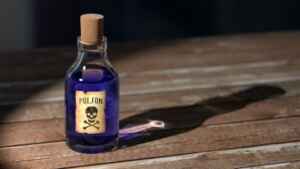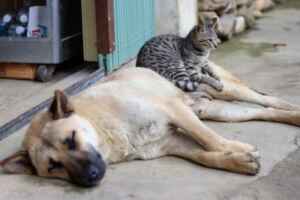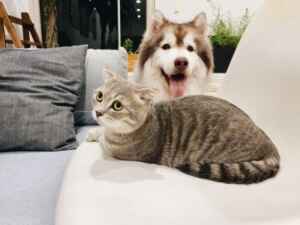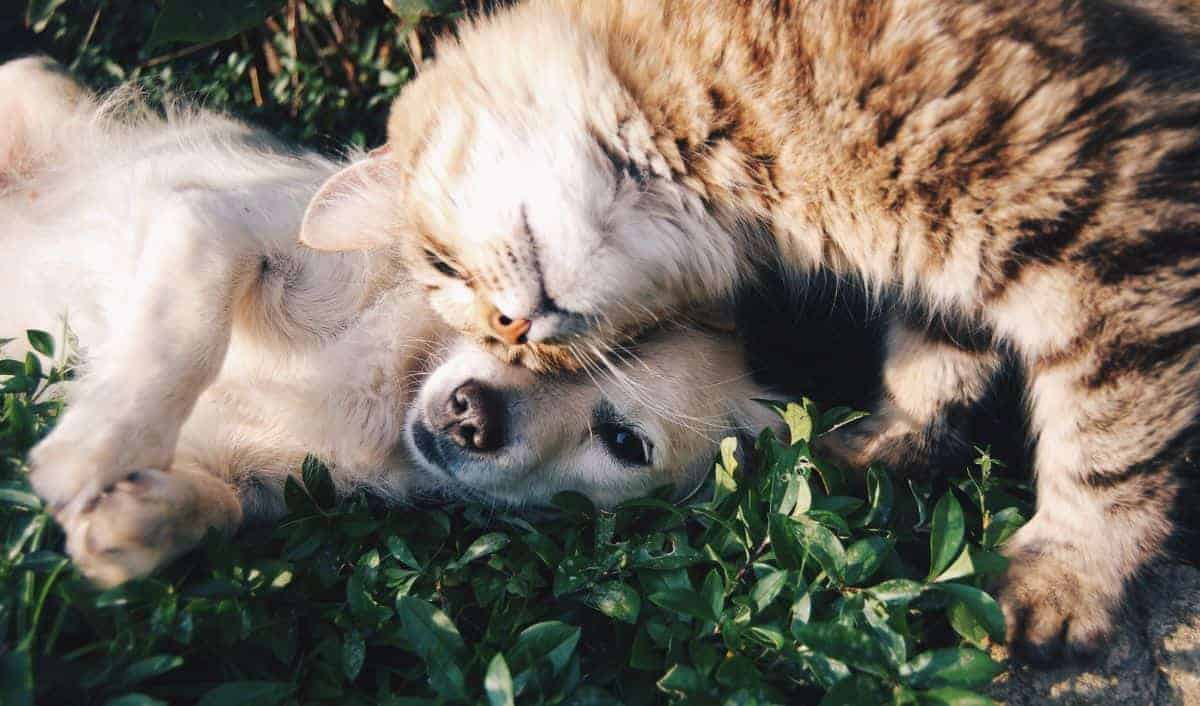Can Fertilizer Be Harmful To Cats and Dogs?
In today’s world, it seems as if everyone is looking for a way to give their plants and grass the best nutrients possible. It is common practice for homeowners to use fertilizers to provide extra nutrients to their lawn and garden in order to keep their plants looking healthy. However, those same people might not realize that the fertilizers that make their plants beautiful can also be harmful to animals.
It turns out that many fertilizers used by homeowners contain ingredients that are toxic to dogs and cats. Pet owners must take precautions before using fertilizer on their lawns or gardens to ensure the safety of their furry loved ones.
This article will explain what to be aware of when purchasing fertilizer and what steps you can take to protect your pets from accidental ingestion.
 The Dangers of Fertilizer
The Dangers of Fertilizer
The main issue with fertilizers used on lawns is that these fertilizers contain salt and pesticides. Pets, such as dogs and cats, aren’t designed to be able to break down these toxins metabolically as humans can. This means the salt and chemicals in the fertilizers get absorbed into their systems quickly when they ingest grass that has been treated with it. Depending on the amount and type consumed, the results could range from mild gastrointestinal discomfort to more severe symptoms such as seizures, difficulty breathing, severe lethargy, and even death.
What Is Fertilizer Made Of?
Fertilizers are products that contain nutrients that plants can absorb through their roots, such as nitrogen and phosphorus. These products can enhance plant growth and improve the health of your lawn or garden. There are many different types of fertilizers to choose from, each with varying levels of nutrients and ingredients.
Most fertilizers these days are manufactured in a special way to make sure they’re not exceedingly harmful to pets when ingested. However, homeowners often use a combination of both fertilizers and pesticides on lawns to keep them clean and pest-free. It is typically the pesticides that are most harmful to animals as their purpose is to kill pests rather than provide nutrients to plants.
Is Organic Fertilizer Safer?
You wouldn’t expect it, but organic fertilizers actually pose a greater threat to pets than regular fertilizers. These fertilizers are usually composed of natural ingredients that are byproducts of the meatpacking and farming industries. The problem is that these products smell highly appetizing to dogs which makes them more likely to seek them out and ingest them in greater quantities. Some types of organic fertilizer include:
• Bone Meal: This fertilizer contains high levels of calcium. Too much calcium can cause pets to develop dietary issues like constipation and stomach upset. In large amounts, bone meal can be fatal.
• Blood Meal: Like bone meal, blood meal spikes your pet’s calcium levels. Blood meal can cause vomiting, diarrhea, and other stomach issues for your pets.
• Fish Emulsion: This fertilizer is typically high in sodium and should be avoided by dogs that experience anxiety or hyperactivity.
The bottom line is to always check the labels of any fertilizers you use on your plants. Your lawn could look beautiful this season with a few added nutrients, but it’s not worth risking Fido’s health for.
How Long Should You Wait To Let Your Pets Out After You Fertilize?
Fertilizers that contain salt and pesticides can be very dangerous for your pets, even in small amounts. The amount of time you should wait before allowing your animals out on the treated lawn varies depending on the type of fertilizer you’re using and how much you used, but it’s generally a good idea to keep them away from areas where the lawn or garden has been treated with fertilizers for at least 24 hours. Some companies even recommend waiting up to 72 hours before allowing your animals on the lawn. Generally speaking, the longer you wait, the safer it will be for your pet.
Dogs and Cats Can Be Exposed Through The Following:
- Accidental ingestion of fertilizer that has been dropped onto the ground while gardening.
- Accidental ingestion of fertilizer that has been tracked indoors from an outdoor garden via shoes.
- Accidental ingestion of fertilizer when a pet eats grass that has been treated with fertilizer.
- Inhalation is not considered to be a major route of exposure, although chronic inhalation (for example, in kennels) is an issue.
If dogs and cats are exposed to chemical fertilizers it can result in acute illness or death. The severity of the signs depends on the type of fertilizer involved, how much they were exposed to, and for how long the animal was exposed. There are many types of fertilizers available on the market today which makes it important to determine if your dog or cat ingested any. It is also important to note what symptoms your pet is showing since different types of fertilizers require various treatments based on their chemical makeup.
 Signs A Pet Has Been Poisoned
Signs A Pet Has Been Poisoned
Both dogs and cats can be exposed to fertilizer through ingestion or by being in contact with it. The signs of a pet being poisoned by fertilizer depend on the type and amount of fertilizer as well as the size of the animal. In some cases, ingested fertilizers can cause:
- Vomiting
- Diarrhea
- Depression
- Tremors
- Seizures
If a large amount of fertilizer is ingested or too much has been absorbed into the skin, then organ damage may occur including liver damage that could be fatal.
Local veterinarian offices can provide more information about common types of fertilizer being used by local homeowners and their effects on animals. Owners who have dogs or cats may wish to consult with a veterinarian before allowing them outside if there is any chance that fertilizer will be present on the ground. Pet owners may also consider using alternative types of lawn treatments such as mulch or wood chips instead of chemical fertilizers that could harm dogs and cats.
Ways To Keep Your Pets Safe From Fertilizer
Accidentally poisoning a pet is a serious problem that can often end in tragedy. It’s better to prevent your pet from going near fertilizer in the first place than trying to cure him after he’s become sick from exposure. Keep pets away from fertilizers by closing off any areas where you use green or brown grass-colored products on your lawn or garden by putting up a fence or planting thorny shrubs
It is best to put pets on a leash or in a fenced area before treating the lawn for weeds with any type of pesticide. This will prevent them from coming into contact with potentially dangerous chemicals while also keeping them nearby so they can be monitored for signs that they have been poisoned or otherwise harmed by the fertilizer.
After treating your lawn, you should supervise your pets when you let them out to make sure they are not attempting to eat the recently treated grass or plants.
Why Do Dogs Eat Grass?
So why do dogs eat grass? They do it for the same reason that other animals like cats, deer, and rabbits do. We call this behavior “eating grass” because it’s mostly observed in carnivores. Grass contains nutrients, but it also serves another important purpose: When an animal eats something poisonous or harmful to them (like rancid meat), they’ll often induce vomiting by eating grass to expel the toxins via bile. Usually, if your pet is sick enough to make him vomit, he won’t want to eat his regular food; he’ll only want to eat grass, which makes sense from a survival/evolution perspective.
What To Do If Your Dog or Cat Ingests Fertilizer?
If your pet ingests a large amount of fertilizer, a visit to the vet may be necessary. Make sure you tell the vet if you think your pet consumed fertilizer and which type. The first thing they’ll do is make your pet vomit up all the fertilizer he/she ingested. Then, depending on how much he/she ingested, they’ll give them medication for several days to ensure all the toxins are eliminated from their systems before letting them resume normal activities. If ingestion was accidental, then the prognosis should be good as long as treatment begins quickly. However, if the exposure occurred over an extended period without treatment, it can result in heart problems and other complications down the road so it’s important to seek prompt veterinary care if your pet ingests fertilizer.
 In Conclusion
In Conclusion
Using fertilizer on your lawn can be effective in making your plants lush, green, and gorgeous, but it’s also something that requires caution if you have dogs or cats that go outside. Make sure you take the necessary precautions to ensure your pet’s safety when using fertilizers on your lawn or garden. Be aware of the ingredients in the fertilizer you purchase and be sure to keep your dogs and cats away from the treated area for 24-72 hours. Always make sure you store fertilizers out of reach when they’re not being used. If you suspect that your pet has been exposed to or ingested fertilizer, take them to your vet right away for treatment.

